Archives
Shillong Indian Panorama Film Festival 09 - Celebrating The Power of Celluloid

The Shillong Indian Panorama Film Festival ‘09 started from 29th May and carried on for three days. It was organised jointly by the Directorate of Film Festivals, Ministry of Information and Broadcasting, Government of India and Department of Arts and Culture, Government of Meghalaya. The festival showcased fourteen films which have won accolades all across the globe. Four among these films were directed by Northeasterners and one by a director with affiliation to the region. What i have gathered through my interactions with these people belonging to the region is that they have fortitude. Come what may they withstood the difficulties thrown at them and without complaining they created gems of Indian Cinema. These few have cast aside the shackles of negativity and disbelief to become world renowned and are reiterating the fact that ‘If you believe you can do it’ to the youth of the region.
In my interactions with a few of the directors I realised that these were the League of Extraordinary Gentlemen. They have achieved what most don’t dream of and the ones who dream don’t work at it. They had a few interesting things to say and had some clear messages for the youth.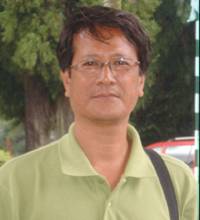
Mr. Oken Amakcham’s humility is unmatched. While talking to him I felt that perfection is what he seeks and is deeply rooted into his culture. The message to youth he gives is simple’ Know what you are doing’
EP. How has the journey of this film been?
Ans: This is my first venture. Earlier my first feature film Kothang was selected for Indian Panorama. Again, in 1995 I received National award for my other film. Then I got two state awards for the film 'Agarbidei' and ‘Saina’ and was also awarded best director in 2005-06. And very recently I tried this ventureof biography. This is my first venture in this category. It is a research work to be mentioned. I came here to learn and see. What is there is more filmmakers and views and discussions on the point of film making.
EP. In short can you tell us about the biography?
Ans. Yes. Ratan Thiyam is not only a great director in theater in India but also abroad. He was born in Imphal but he is the property of the International Community. His aesthetics and direction is most peculiar. I made this film for the next generation.
EP. What motivated you to make this film?
Ans. If somebody wants to make a film he should be ready to learn. Different kinds of motivation like culture, sports, special issues are there. If I like to make a film on social issues eg on Manipuri society then I need to know about the society like it is in turmoil as of now. If it is on Meghalaya then I should know what are the habits of the people, their tradition and what their issues are. Then make it, this is my humble appeal to the young generation.
EP. Do you see the young generation especially from Manipur following you?
Ans. Hopefully.
EP. Does your work encompass all the qualities of Ratan Thiyam?
Ans. Ratan Thiyam is a very dynamic person. He is an actor, he is a musician, he is a music composer, he is a designer, he is a theatre director. What I have covered is only his style and aesthetics. The peculiar item is his aesthetics and his style of production. 
EP. What next project is in your mind?
Ans. I am planning a biography of a sports personality from the state of Manipur. She is a Padmashree awardee. Lets see.
EP. How did all this start for you?
Ans. First my parents and the people of my locality gave prime importance to culture. My mother was an expert and she loved culture very much. She tried to instill a cultural personality in me. I remember my mother. For last 15- 16 years I have been doing this work.
EP. What do you have to say to the youngsters of Manipur and Northeast as a whole?
Ans. Hain (yes) Do it very sincerely. Meet the experience person and do hard work. Know about the society and then make the film.
EP. There are times when finance and technology is a problem in the region. So how do you over come it?
Ans. Yes. Yes. I am facing this too. Financial problem is there. So I meet the government agencies like Doordarshan who have come across to help me in my endeavour. My future project is also expected to be financed by them. Documentary and short films do not draw producers. In serious films there are negligible producers.
EP. Has any independent (non-governmental) organisation come forward to help with any financial assistance?
Ans. No.
EP: Being such an acclaimed director you are facing financial problems what should the new entrants of the field do?
Ans. I want to say that they should get exposure and to try their talent first and then the producers will automatically come.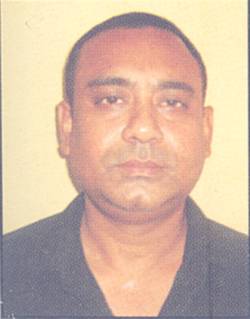
Mr. Bani Prakash Das. DIR: Distant Rumblings (Eng)
The eagerness to be aware of things around him catapulted the man to heights of fame. Educated in the city of Guwahati and a Cotton College graduate Mr. Das advises the youth to put in a lot of hard work.
EP. You were on a different project altogether on the border when you first started work on this project. Can you elaborate?
Ans. While on the way for my shoots I had seen an aircraft tyre hanging on the tree. Then I asked the villagers why this aircraft wheel was hanging there. Then to my surprise I found out that it has been there since World War II. The aircraft crashed over a bridge and the locals there tied it to the tree as a memorial. So I started to enquire as I did not have much knowledge about WWII in our region. Then I started the research work and met veterans of the war Local, Allied and German War veterans who come to visit the cemeteries in Manipur and Nagaland till date. Now also if you go to these jungles you may find many wreckages, bullets and metal pieces. 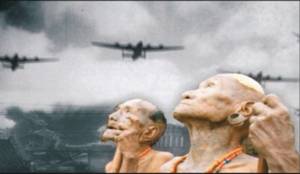
EP. What was the time period for your research?
Ans Three years.
EP. Did you abandon the project that you were doing earlier?
Ans No, I completed it and then went back to those places which were affected by WWII.
EP. What have you done to promote the film on an independent front?
Ans. See my film has been screened at many film festivals in Mumbai, in Germany and many other places. I still have invitations with me. It is very difficult in this type of project for public viewing. Our people are not really aware of documentaries at all. They watch only Hindi cinema or English films. Of this kind of serious work they are not 100% aware.
EP. You are saying that Indian audience is not ready for intellectual cinema?
Ans. I think not yet. Slowly slowly people are getting a chance to see these kinds of films.
EP. What scope do you see for this kind of cinema and the young people?
Ans. Definitely a lot of scope. In the North East there is a variety of subjects and that amateurs should choose nice subjects.
EP. What do you think is the procedure for the youngsters who want to enter this field?
Ans. You should see good films and study very hard.
EP. How did you start your career?
Ans. A long time back with the feature film, 'I killed him Sir'. Its a 35mm cinema scope. It was a big budget film at that time.Then I slowly switched over to documentary film making as I found it more interesting. Now also I am working on a subject.
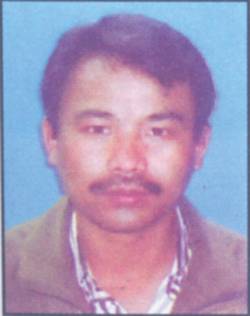
Mr. M. Maniram Dir: Mon Jai (Assamese)
A simple man Mr. Maniram took five years to complete his project amidst various hardships. He questions the credibility of the views of youth to earn fast without taking into account the repercussions of their activities. His message is simple don’t cross over from a righteous path to a sinful one in search for glory.
EP. Many films are being made in Assam but most fail to reach the national or international standards. Your film has done so. How do you feel?
Ans. Naturally, it makes me feel very happy as it was my first venture. It took me 5 years to fulfill because of some financial constraints. In the midway I had to approach some of my well wishers and some came up to help me and make my dream a reality. That is why it took nearly 5 years in the making. It is not a conventional type of movie. It is basically on the youth. What I have realised I have shown in the film. The basic theme of the story is about the youth and the background of insurgency.
EP. Among the four main characters of the film Nayan is one youth with righteous virtues and others are aggressive and have a darker side. Basically it is the current society at large. What is the point that you are trying to project to the audience?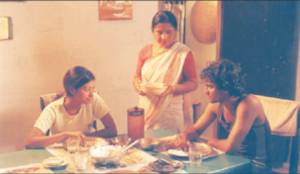
Ans. The basic concept of the film is the bad in the society, the world is bad. There should be a limit of ‘badness’. One should not cross that limit. To some extent you and me everyone is unfair or not perfect. But we must not cross the level. That is unpardonable. In the films the three guys kill for money. So they have crossed the level. For one’s survival killing another is not justified and that is what I am portraying in my film - that all people in this world are bad and there should be a limit to it.
EP. How do you define bad?
Ans. Bad in the sense I have shown thorough violence, killing, kidnapping. Like the three characters in the film kidnap a rich guy and after receiving the ransom are scared to release the person because of their fear of the law. They finally kill the guy. They took the shadow of insurgency to protect themselves as an insurgent movement was going on in the society. Extortion, murder, kidnapping is going on so their deeds will be thought to be done by the insurgents and they could escape free. They took advantage of the society.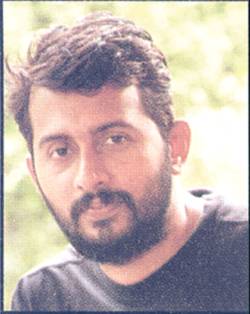
K.R.Manoj, Dir: Memories, Movement and a Machine (Malayalam)
Here is a man who has seen the change of Malayali cinema over time. His direct nature and hunger for the industry speaks volumes in his work. To the youth he says “… if you have real passion then there is a path…”
EP. What prompted you to make this movie?
Ans. I felt that I want to document the history of this moment. This movement has radically changed the situation in Kerala. From hardcore commercial industry to some main cinema.
EP. What is the basic change that you have shown that has taken place?
Ans. I am not talking about the technical side. I have focused on the aesthetic sense. I think the technology has changed mostly but not the aesthetic sense.
EP. Is financing such films a challenge?
Ans. It is everywhere. If you are not in full commercial ventures then you will face a financial crunch.
EP. Do you do anything on an independent front to promote the film?
Ans. I made this film with the support of my close friends. Usually there is problem funding. In the world there are many organisations but in India PSBT is the major funding organisation. There are many ways to get funding and you need to get your work approved and then make the films. However the number of films produced is less compared to commercial ventures.
EP. Advice to youngsters regarding this industry?
Ans. See if you have a real passion then there are paths. You can find the path.

